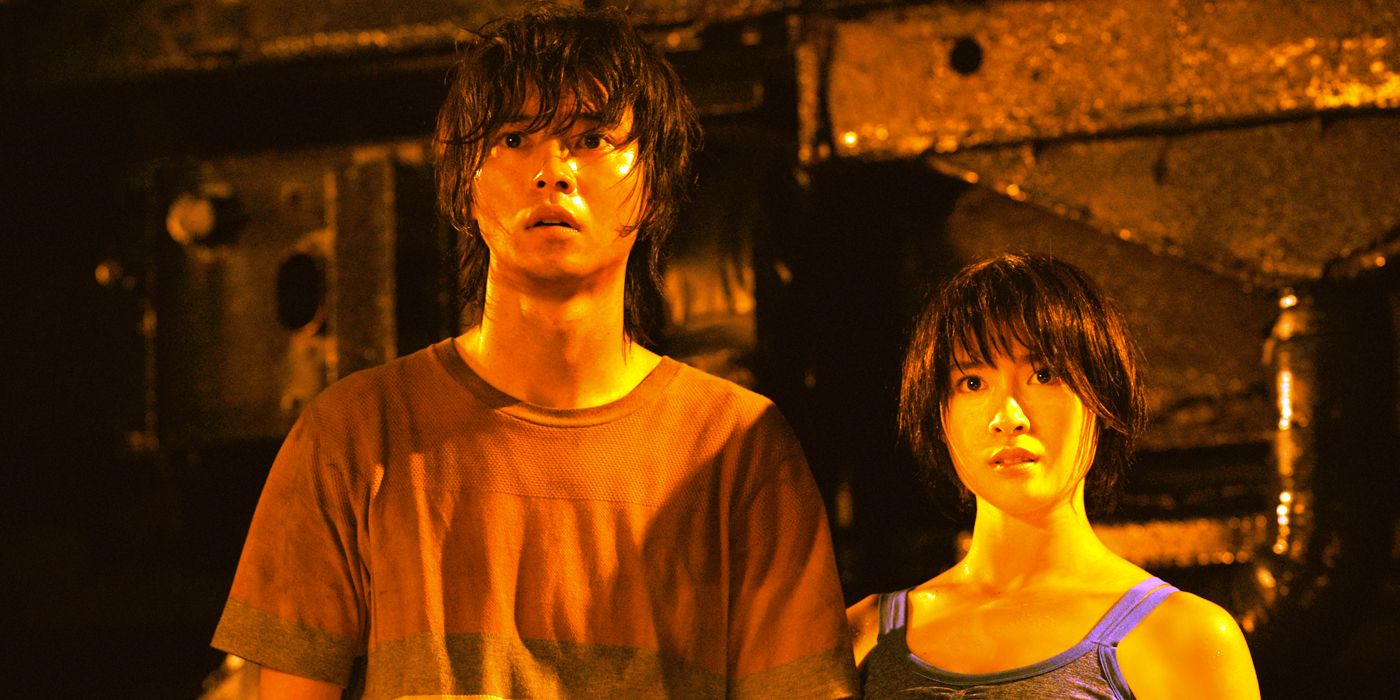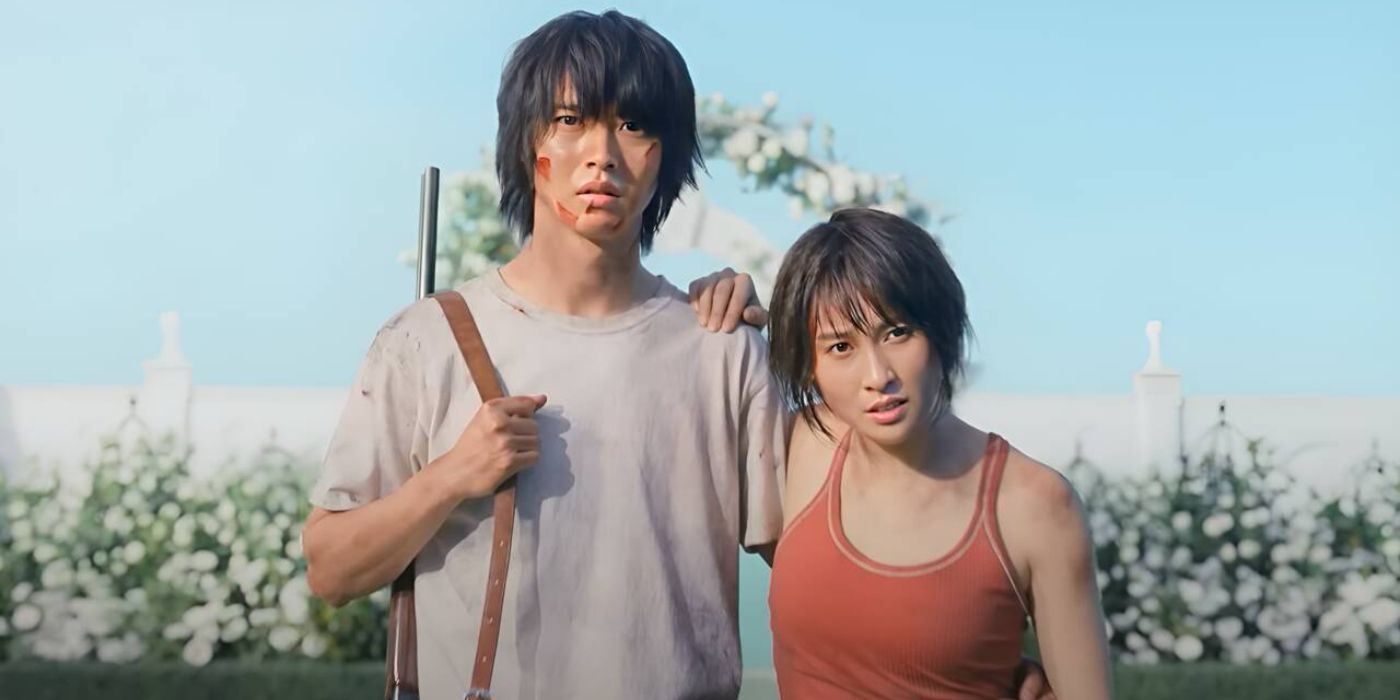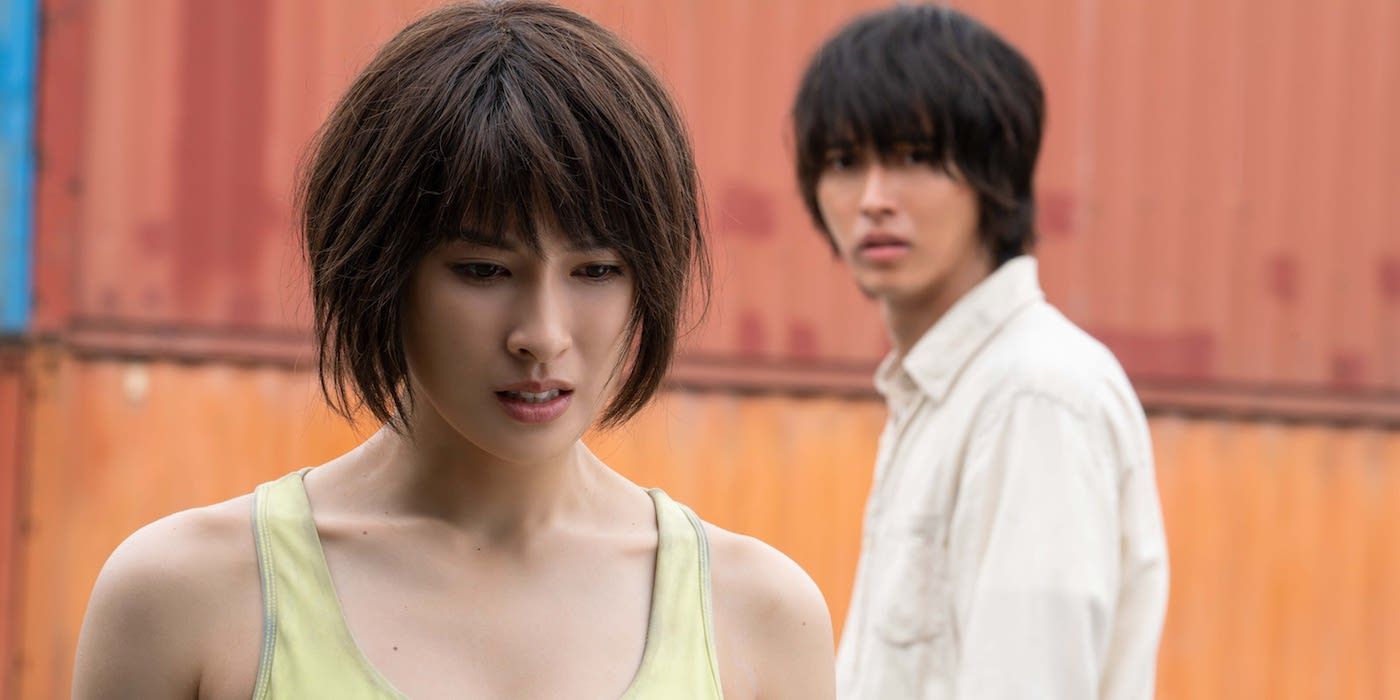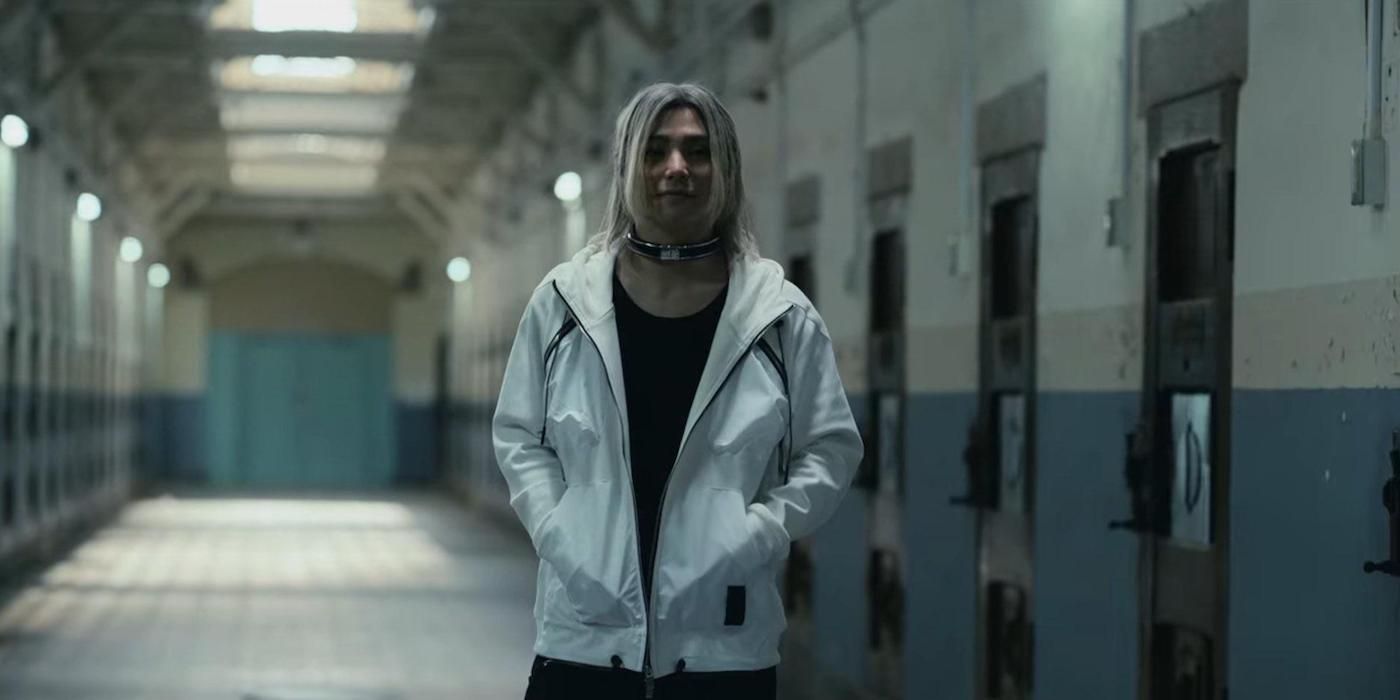The following contains spoilers for Season 2 of Alice in Borderland, now streaming on Netflix.
In many Japanese stories, creatives often use puns to hint at the roles characters play in their respective narratives. This is seen a lot in both manga and anime through popular properties such as Naruto and Komi Can't Communicate. This tactic is on display once more in the Netflix adaptation of the highly-popular Alice in Borderland manga.
Season 1 of the Netflix series introduced many key characters, including the heroic Ryohei Arisu, who helps his friends through sadistic games in a dystopian version of Tokyo, not realizing they were in purgatory after a meteor strike. As he goes along, he garners allies whose names hold double-meanings that hint at their roles in the story. This trend continues in Season 2 as Team Arisu face off against the Face Cards in more torturous competitions. Here is a breakdown of the names, puns and the journey of these important characters.
Ryohei Arisu is All About Family
As the name implies, Alice in Borderland plays on Lewis Carroll's iconic 1865 story, Alice in Wonderland. Here, Ryohei Arisu (有栖良平) -- whose last name rhymes with Alice -- is the person thrown down a rabbit-hole. However, rather than meeting eccentric creatures, he learns about life through the games and enemies he fights.
Interestingly, "Ryohei" translates to "good peace," while "Arisu" translates to "has a home," both of which match his essence throughout the series. He constantly tries to maintain peace, unite all factions and get everyone to the real-world. He never loses hope, begging everyone to keep being a family. His persistence, demand for justice, righteousness, and overall light within further nods to Alice in her realm, and how she overcomes her persecution and hearing.
Yuzuha Usagi is a Nimble Ray of Hope
Yuzuha Usagi (宇佐木柚葉) is the young lady Arisu falls in love with, carving out a romantic story as they protect each other. The character's last name "Usagi" translates to "heavenly assistant." This makes sense as she keeps inspiring Arisu throughout the story, giving him a sense of purpose when he's demotivated. This quality shows up most in the finale as she urges him to snap out of Mira's mind-control and win the Queen of Hearts' game of croquet -- nodding to how Alice learned about herself via the White Rabbit in Carroll's story. As a deeper cut, it also nods to how Neo followed the White Rabbit tattoo in The Matrix and found his Trinity.
Usagi is also Arisu's constant ray of hope on a physical level. She has ninja-like abilities, which helps her to evade games involving shooters. This nods to her last name "Usagi" being pronounced the same as the Japanese word for "rabbit." It could even be a possible nod to the samurai rabbit from Teenage Mutant Ninja Turtles. Additionally, "Yuzuha" translates to "citrus leaf," which is used in teas for health, restoration, good luck and energy -- all things she provides Arisu. Her name might even nod to nature, as she and her father loved rock-climbing.
Shuntaro Chishiya is a Quick-Thinking Beacon
Shuntaro Chishiya (苣屋駿太郎) is another comrade Arisu meets, although he's a tad introverted. His last name rhymes with "Cheshire" in reference to The Cheshire Cat -- a character Alice struggles to trust in Carroll's story. Team Arisu has this same experience, with fans wondering if Chishiya's out for himself. He turns out to be a hero, as hinted by his name "Shuntaro," meaning "fast horse/person." His name homages how quickly he can mentally chart out solutions, per the math game with the King of Diamonds.
He might not be physically badass, but his brain is superfast, which is why he also uncovers spies like the Jack of Hearts. Interestingly, "Chishiya" means "torch seller," which speaks to the light he exudes. He offered hope to patients in his tenure as a doctor, and his ambitions for a brighter world do convince the Diamond King and an enemy, Niragi, there's still good out there.
Hikari Kuina Represents Positive Change
Hikari Kuina (水鶏光) is someone Arisu and Usagi rely on heavily, especially as she's been through intense rigors in the real-world. "Hikari" translates to "light," which can be viewed as the optimism she inspires in regard to her transgender story. Her parents hated her for it, but she rose above, embraced her true identity and persevered. This idea of transition also nods to The Caterpillar from Alice in Wonderland -- an entity Alice took some time to understand.
Admittedly, Kuina was initially rough-edged, but began to open up and connect with others. As for the meaning of "Kuina," it translates to "water rail," a bird common to Asia. This can speak to its primary diet of insects, including caterpillars, nodding to how Kuina initially came off insolent, all due to the mistreatment she suffered in life. Ultimately, she became a kinder person by finding kindred spirits.
Akane Heiya Stands For Controlled Chaos
In Alice in Wonderland, The March Hare is a tad pompous and enjoys the chaos in the realm. It's initially the reason Alice doesn't really take to the character at the tea party. Akane Heiya (塀谷朱音) cuts that same figure when she rescues Arisu from the gunman in the King of Spades. She's pretty nimble as well, nodding to "Heiya" rhyming with "hare," and being the polar opposite to the benevolent Usagi.
In fact, Heiya even tries to sleep with Arisu, which stems from the stuck-up attitude she had in the real-world. This links to "Heiya" meaning "fenced valley," which suggests nature doesn't have to be boxed in to be beautiful. By removing these fences, life prospers. This happens when Heiya meets the heroes and becomes more selfless, forgetting about society's superficial constructs back home. Interestingly, "Akane" translates to "bloody noise," which nods to how she became a brutal archer and killer after the stadium game, learning physically under Aguni, and then mentally with Arisu's posse.
Takeru Danma Loves Wanton Disorder
Takeru Danma (弾間剛) is the show's take on The Mad Hatter, or the Hatter, as Alice in Wonderland depicted. In Carroll's story, this person was delirious in the empire The Queen of Hearts built, leaving Alice scared at the tea party. This nods to Takeru's beach mansion, where he tricks Arisu and friends into thinking it is a haven. While he wanted everyone dead down the line, he did have good intentions at first.
This speaks to "Takeru" meaning "strength," which inspires Aguni at first, only to realize his buddy has been losing his mind. This breaks Aguni and leads to him shooting Takeru dead, as he wanted the facade of constantly partying to end. As for "Danma", it translates to "bullet space," which teases how he'd die. Interestingly, he was known as "boss" at the mansion, which rhymes a bit with "bosha," which does translate to "hatter," reinforcing how Takeru was the party animal who lost his way.
Mira Kano is a Twisted Oppressor
In Alice in Wonderland, The Queen of Hearts is a tyrant who loves sentencing people to death. Mira Kano (加納未来) takes on this role as The Queen of Hearts, overseeing Arisu and friends in the limbo realm where many die. "Mira" means "future," which is coincidental because the only future people have can be unraveled by beating her at croquet -- another game from Carroll's world. This way, the survivors can remain in the game world or return to reality, the latter of which Team Arisu opts for.
Interestingly, "Mira" also rhymes with "mirror," nodding to Alice entering the ethereal world via a mirror, and also, how meeting all these individuals reflected humanity's values, teaching Alice -- as well as Team Arisu -- to be better. Lastly, "Kano" means "increase payment," which speaks to the toll Mira's world takes on players such as Tatta. This causes many to lose their heart, soul, sanity and moral compass, offering these things up just to win. It could even be spun positively, as people pay the price to grow in character.
Isao Shirabi is Cruel but Necessary as Punishment
Isao Shirabi (稚羅日勲) is the King of Spades, who comes off like the show's Winter Soldier. Masked up, he keeps culling players via mass shooting sprees. Isao means "meritorious day", which nods to the brutal alley fight where he guns down and stabs up Team Arisu. It claims many lives, with Arisu and Usagi alone moving on to face Mira. There's merit in this, however, as the memories of the fallen motivate the suriviving heroes.
Additionally, "Shirabi" translates to "immature gauze," which references the merciless killings and how the masters use the gunman to control the game. He comes off as a bandage on the competition. However, it's very juvenile and irresponsible, which is why Shirabi is glad that Aguni kills him. Its also the reason he felt he was taking people out their suffering with his mission on his sprees.
Season 2 of Alice in Borderland is now available on Netflix.









